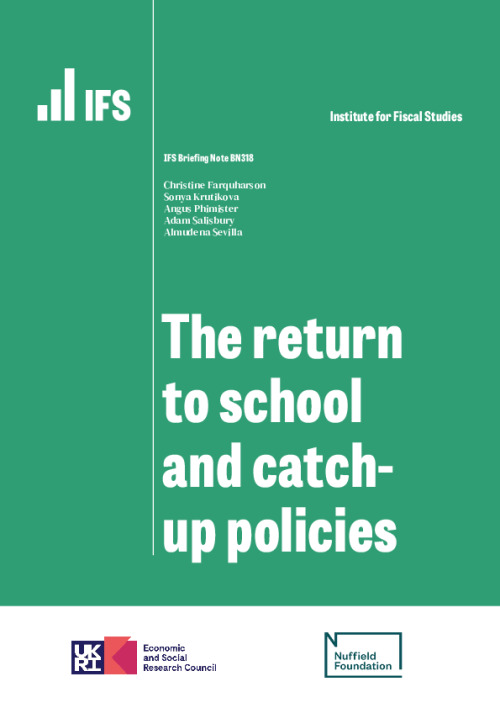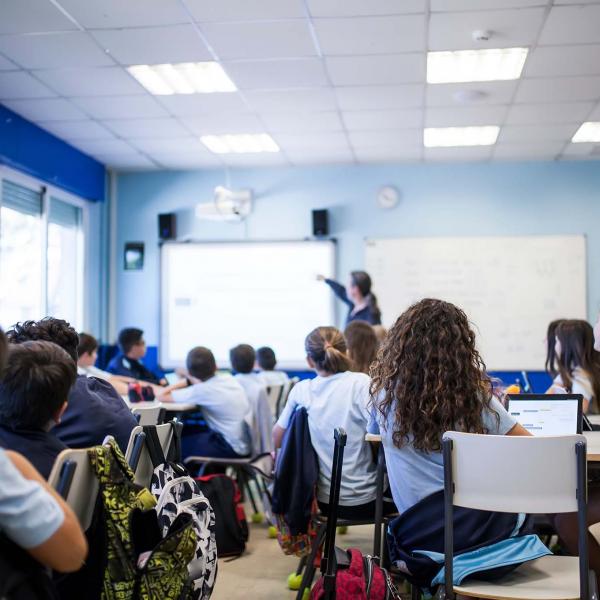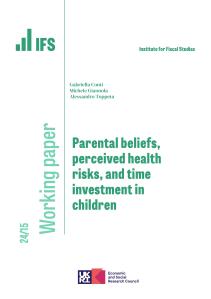On 8 March, all pupils in England will return to in-person schooling after what is hopefully the final period of COVID-related blanket school closures. This is an important first step in starting to undo some of the damage that the pandemic has inflicted on children’s education and well-being, and in starting to close the educational inequalities that have widened between those from disadvantaged and better-off backgrounds. However, simply reopening the school gates will not be enough on its own; addressing the consequences of the pandemic is set to be the most important challenge in education policy over the coming years.
In this briefing note, we analyse data collected in the last week of February 2021 to understand parents’ views about two important aspects of the return to school. We first consider the very short term: how do parents feel about sending their children back to school, and what concerns do they have? We then turn to the challenge that will dominate the longer-term debate: the extent of lost learning and what schools and policymakers can do to help children recover from the consequences the pandemic has had for their learning and their mental health.
To understand parents’ views on these two challenges, we surveyed almost 6,000 parents of school-aged children in England. The data in this briefing note were collected between 23 February and 2 March 2021, after the government announced its school reopening plan but before children returned to the classroom. The data have been weighted to be representative of parents in England.
Key findings:
- Most parents support the return to school on 8 March. Nine in ten parents say they would send their child back on Monday even if the return were not compulsory. That compares with fewer than two-thirds of families during the staggered return to school last summer. Encouragingly, the differences between better-off and more disadvantaged families have also grown smaller – though gaps remain at secondary school.
- Among parents who are still reluctant to return to in-person schooling, health concerns continue to be the most important reason. Nearly half of these parents say that the COVID-19 case rate is the key factor in whether they support a return to school. However, around 40% of reluctant parents cite factors that are directly under the control of policymakers (precautions taken at school such as lateral testing or mask-wearing, and progress in vaccinations).
- Overall, 65% of primary school parents and 68% of those with secondary school children are concerned that their child has lost out on learning. While close to half of those whose child was in primary school think that their child will have recovered within a term, a third of concerned parents think that recovery will take a school year or more. At secondary school, 9% think that their child will never make up for the pandemic’s effect on their learning.
- Support for catch-up policies is very high, with over 90% of parents in favour of at least some academic policies for catch-up and 83% in favour of policies to support pupil well-being. The most popular academic policy by some distance is tutoring, which over 80% of parents support. Parents are more divided in their priorities for supporting pupil well-being, but around four in ten would prioritise in-class activities such as arts or time outdoors.
- Support for policies that would increase the amount of learning time is much lower, with around half of parents in favour of a longer school day and fewer than half in favour of an extended term or repeating school years. Support for these policies is also more divided, with parents in the most disadvantaged third around 10 percentage points less likely to support policies that would change the regular school schedule than those in the top third. The design of the recovery programme must explicitly consider not just what is likely to be effective, but also what is feasible for families and how to ensure that support actually reaches the students who need it most.












